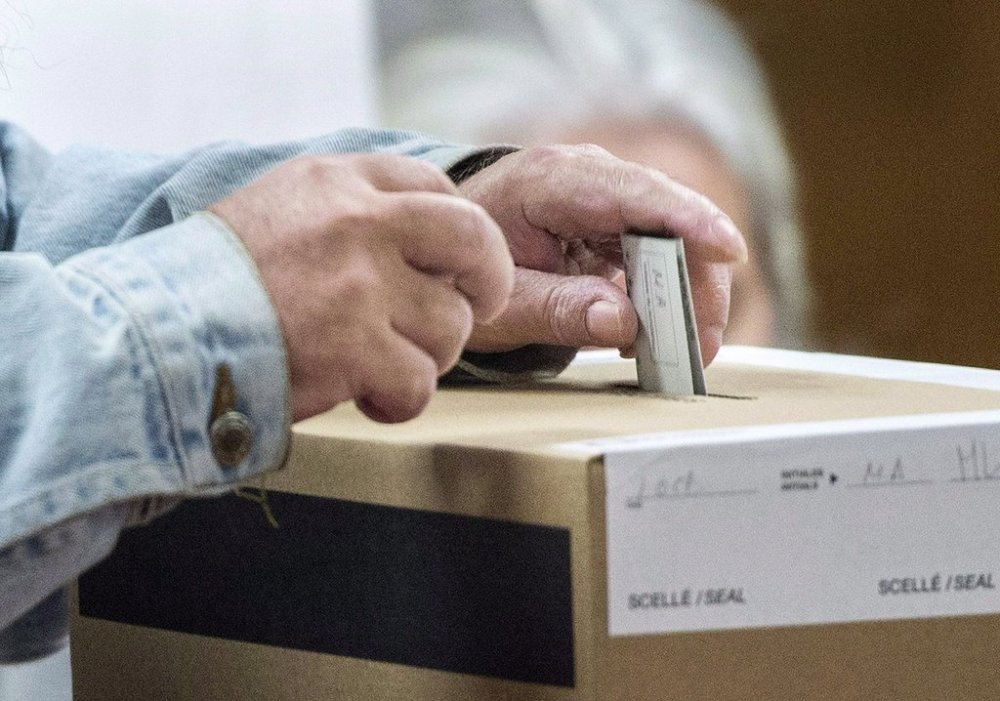Politics
Quebec’s Municipal Elections: Key Factors to Watch for Nov. 2

Voters across Quebec are preparing to cast their ballots in municipal elections scheduled for November 2, 2025. This election cycle is pivotal, with several key factors influencing voter engagement and candidate representation.
Voter Participation Trends
Participation in municipal elections has been declining in Quebec. In 2021, only about 39 percent of eligible voters participated, a decrease from 45 percent in 2017. Montreal’s turnout was particularly low, at just 38 percent, down from 42 percent four years earlier. Laval reported a dismal 28 percent turnout, while Quebec City saw 45 percent participation, making it an outlier in the province.
This upcoming election faces additional challenges due to a postal strike, raising concerns from Quebec’s election officer about the timely delivery of critical election information to voters.
Candidate Representation and Gender Parity
Quebec’s Department of Municipal Affairs had aimed for women to comprise 40 to 60 percent of municipal candidates; however, this target will not be met. Currently, women make up 36 percent of candidates, a slight increase from 35.5 percent in 2021. This equates to just over 4,500 women running for office—a modest rise of 239 since the last election.
A report from the University of Calgary highlights a broader issue: women constitute only 31 percent of all elected municipal representatives across Canada, with only 22 mayors holding office. Alarmingly, approximately 16 percent of councils surveyed had no female representatives.
Transit Strikes and Their Impact
On election day, roughly 2,400 transit workers in Montreal are expected to strike. Marie-Claude Léonard, the network’s general director, has expressed concerns that this could hinder citizens’ ability to exercise their democratic rights. Quebec’s labour tribunal is currently assessing service requirements for the day, which may prioritize electoral needs. A precedent was set during a previous transit strike coinciding with the Grand Prix weekend, where the tribunal mandated full service to accommodate the influx of tourists.
Leadership Changes in Montreal
With current Montreal Mayor Valérie Plante not seeking re-election, attention has shifted to her party’s new leader, Luc Rabouin. Polls suggest he lacks the popularity of Soraya Martinez, the leader of Ensemble Montreal and former majority party leader from 2013 to 2017. Recent polls conducted by Léger indicate Martinez is leading Rabouin by approximately nine points, with another poll by Segma Research showing her ahead by eight points. Notably, nearly half of voters remain undecided, with 42 to 48 percent of respondents expressing uncertainty about their choices.
Political Apathy and Uncontested Seats
The current election cycle is marked by significant political apathy. Nine municipalities in Quebec have no candidates running for mayor, and 40 city council seats remain unclaimed. Although this is a reduction from the 120 seats left unfilled in 2021, it remains a concerning trend. Mayors in these municipalities will continue to serve on an interim basis until new elections can be organized.
In total, over 4,500 municipal candidates, including 564 mayors, have been elected via acclamation, representing just over half of all candidates. This level of political engagement indicates a continuing challenge for Quebec’s electoral landscape, where nearly 63 percent of candidates ran unopposed in the last election.
As election day approaches, the focus remains on how these factors will shape the future of local governance in Quebec. With challenges related to voter turnout, candidate representation, and transit strikes, the outcome of the municipal elections could have lasting implications for the province.
-

 World3 months ago
World3 months agoScientists Unearth Ancient Antarctic Ice to Unlock Climate Secrets
-

 Entertainment3 months ago
Entertainment3 months agoTrump and McCormick to Announce $70 Billion Energy Investments
-

 Lifestyle3 months ago
Lifestyle3 months agoTransLink Launches Food Truck Program to Boost Revenue in Vancouver
-

 Science3 months ago
Science3 months agoFour Astronauts Return to Earth After International Space Station Mission
-

 Technology2 months ago
Technology2 months agoApple Notes Enhances Functionality with Markdown Support in macOS 26
-

 Top Stories2 weeks ago
Top Stories2 weeks agoUrgent Update: Fatal Crash on Highway 99 Claims Life of Pitt Meadows Man
-

 Sports3 months ago
Sports3 months agoSearch Underway for Missing Hunter Amid Hokkaido Bear Emergency
-

 Politics3 months ago
Politics3 months agoUkrainian Tennis Star Elina Svitolina Faces Death Threats Online
-

 Technology3 months ago
Technology3 months agoFrosthaven Launches Early Access on July 31, 2025
-

 Politics3 months ago
Politics3 months agoCarney Engages First Nations Leaders at Development Law Summit
-

 Entertainment3 months ago
Entertainment3 months agoCalgary Theatre Troupe Revives Magic at Winnipeg Fringe Festival
-

 Politics2 weeks ago
Politics2 weeks agoShutdown Reflects Democratic Struggles Amid Economic Concerns





















